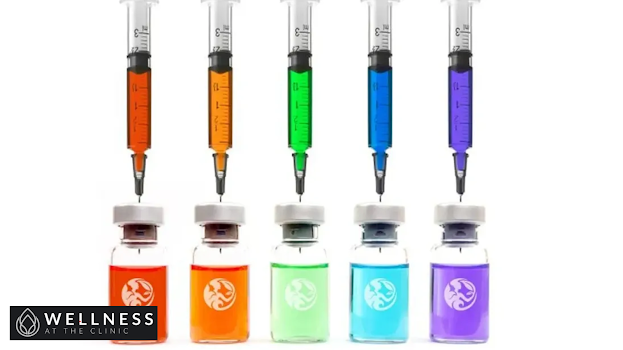Selecting the Ideal Physiotherapist for Sports Rehabilitation
Selecting the right physiotherapist is crucial for a successful sports rehabilitation journey. Whether you're recovering from an acute injury or managing a chronic condition, the expertise and approach of your physiotherapist can significantly impact your recovery. Here's a comprehensive guide to help you choose the right physiotherapist for sports rehab.
1. Check Qualifications and Credentials
The first step in choosing a physiotherapist is to verify their qualifications and credentials. A licensed physiotherapist should have completed a recognized degree program and be registered with a professional body, such as the College of Physiotherapists. Additionally, look for any certifications in sports physiotherapy, which indicate specialized training in handling sports-related injuries.
2. Experience in Sports Rehabilitation
Experience matters, especially when it comes to sports injuries. Look for a physiotherapist with a track record of working with athletes and active individuals. They should understand the demands of various sports and the specific needs of athletes. Experienced physiotherapists are more likely to provide tailored treatment plans that address your unique requirements.
3. Specialization in Your Sport
Different sports have different injury patterns and rehabilitation needs. A physiotherapist with experience in your specific sport can offer more effective treatment. For example, a physiotherapist who frequently works with runners will have a deeper understanding of common running injuries, biomechanics, and appropriate rehabilitation exercises for runners.
4. Comprehensive Assessment Approach
A good physiotherapist will conduct a thorough assessment to understand the root cause of your injury. This assessment should include your medical history, an examination of the injured area, and an analysis of your movement patterns. A comprehensive evaluation ensures that the treatment plan addresses the symptoms and any underlying issues contributing to the injury.
5. Personalized Treatment Plans
One-size-fits-all does not apply in sports rehabilitation. The right physiotherapist will create a personalized treatment plan based on your assessment results. This plan should include manual therapy, exercises, and modalities like ultrasound or electrotherapy tailored to your needs and goals.
6. Focus on Functional Recovery
In sports rehab, it's essential to restore not only the injured area but also overall function. Your physiotherapist should focus on functional recovery, incorporating sport-specific exercises and drills into your treatment. This approach ensures you regain the strength, flexibility, and coordination needed to return to your sport safely.
7. Communication and Rapport
Effective communication is critical to a successful rehabilitation process. Choose a physiotherapist who listens to your concerns, explains the treatment plan clearly, and answers your questions. Building a good rapport with your physiotherapist fosters trust and makes you more comfortable throughout rehab.
8. Patient Education
A knowledgeable physiotherapist will educate you about your injury, rehabilitation, and preventive measures. Understanding your injury helps you actively participate in your recovery and take steps to prevent re-injury. Look for a physiotherapist willing to share their knowledge and empower you with information.
9. Flexibility and Availability
Consistency is crucial in rehabilitation. Ensure that the physiotherapist's schedule aligns with yours and that they are available for regular sessions. Additionally, consider their flexibility if you must reschedule due to unforeseen circumstances. Consistent and regular sessions are vital for making steady progress in your recovery.
10. Reviews and Testimonials
Before making a decision, check reviews and testimonials from other patients. Positive feedback from satisfied patients is a good indicator of the physiotherapist's competence and professionalism. However, avoid overly negative reviews and try to understand their context.
11. Modern Facilities and Equipment
Physiotherapy clinics with modern facilities and up-to-date equipment can enhance your rehabilitation experience. Advanced tools and technology can aid in diagnosis, treatment, and tracking progress. While facilities should not be the sole deciding factor, they do contribute to the overall effectiveness of the rehabilitation process.
12. Holistic Approach
Sports rehabilitation is not just about treating the injury but also about considering overall well-being. A holistic approach includes addressing nutrition, mental health, and lifestyle factors. A physiotherapist who adopts a holistic approach can provide comprehensive care that supports your overall health and recovery.
13. Long-Term Support
Rehabilitation often extends beyond the initial treatment phase. Choose a physiotherapist who offers long-term support, including follow-up sessions and progress evaluations. Continuous support helps maintain the gains achieved during rehabilitation and ensures you stay on track with your recovery goals.
Choosing the right physiotherapist for sports rehab is critical to your recovery journey. By considering factors such as qualifications, experience, specialization, personalized treatment plans, and effective communication, you can find a physiotherapist who meets your needs and helps you achieve optimal recovery. Remember, the right physiotherapist treats your injury and empowers you with the knowledge and tools to prevent future injuries and excel in your sport. Take the time to research and select a physiotherapist who aligns with your goals, and you'll be well on your way to a successful recovery.



.png)
Comments
Post a Comment